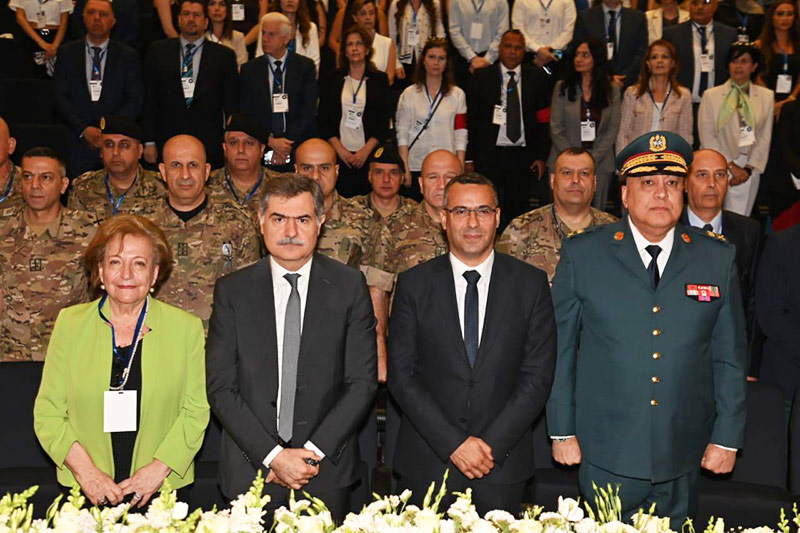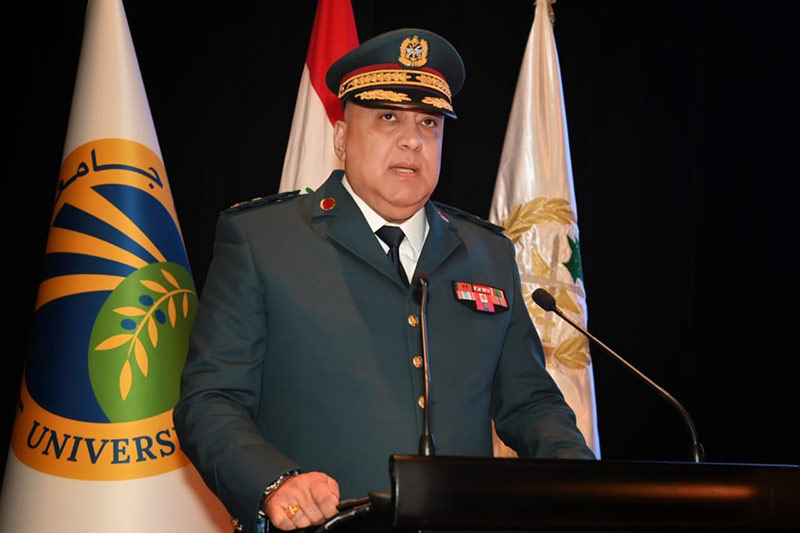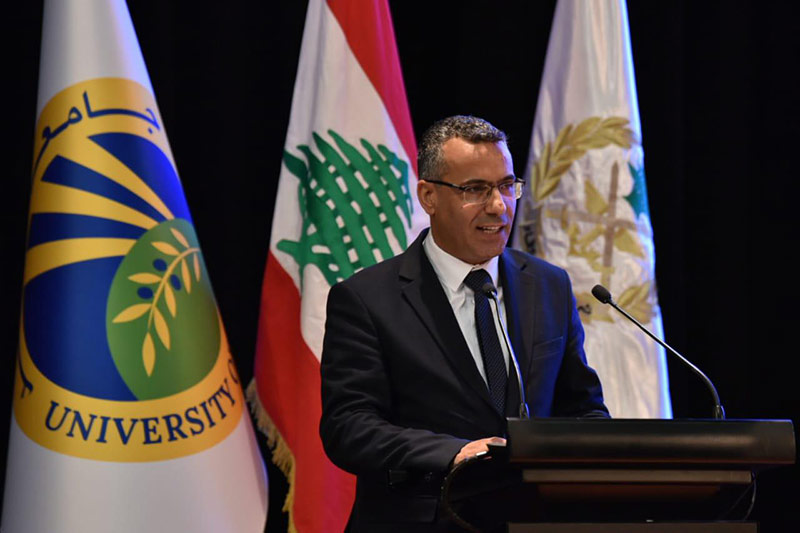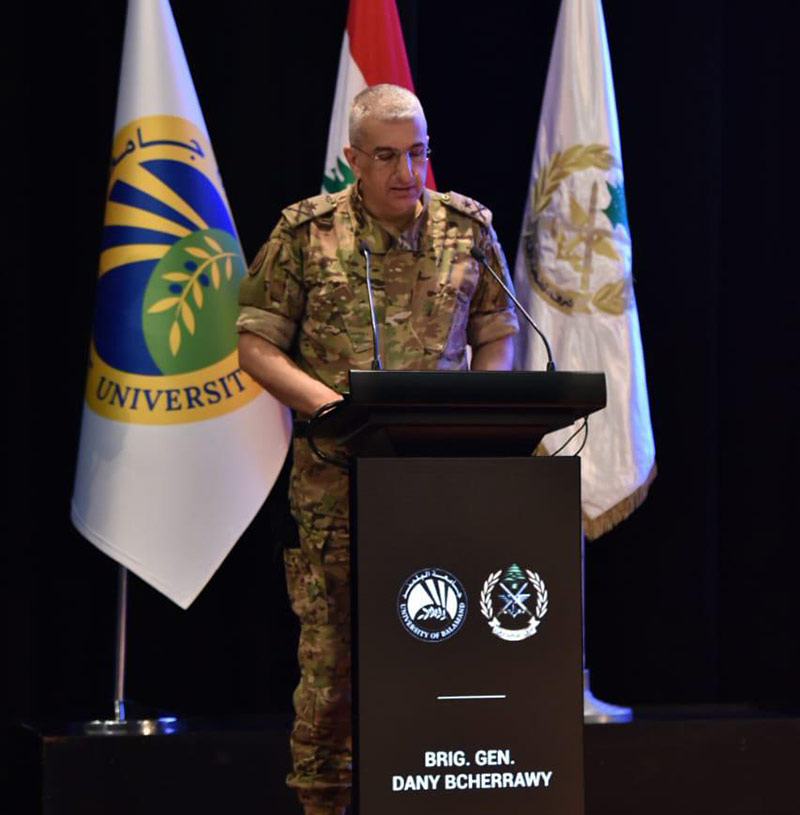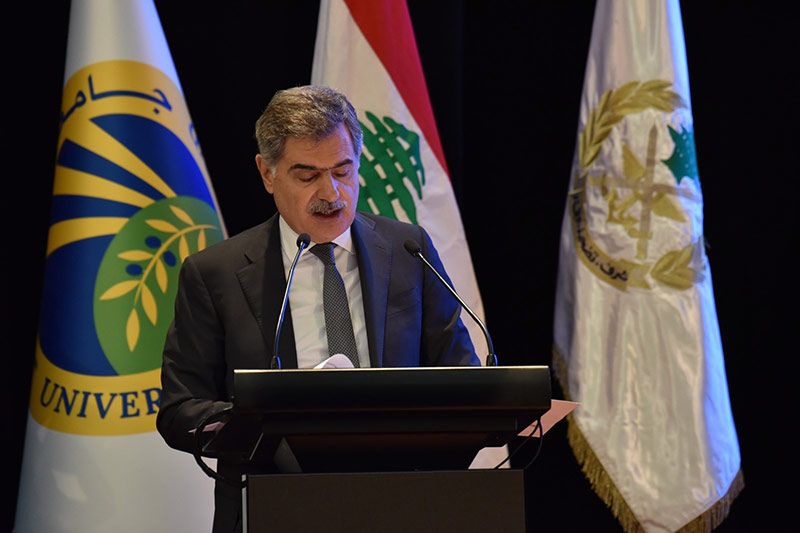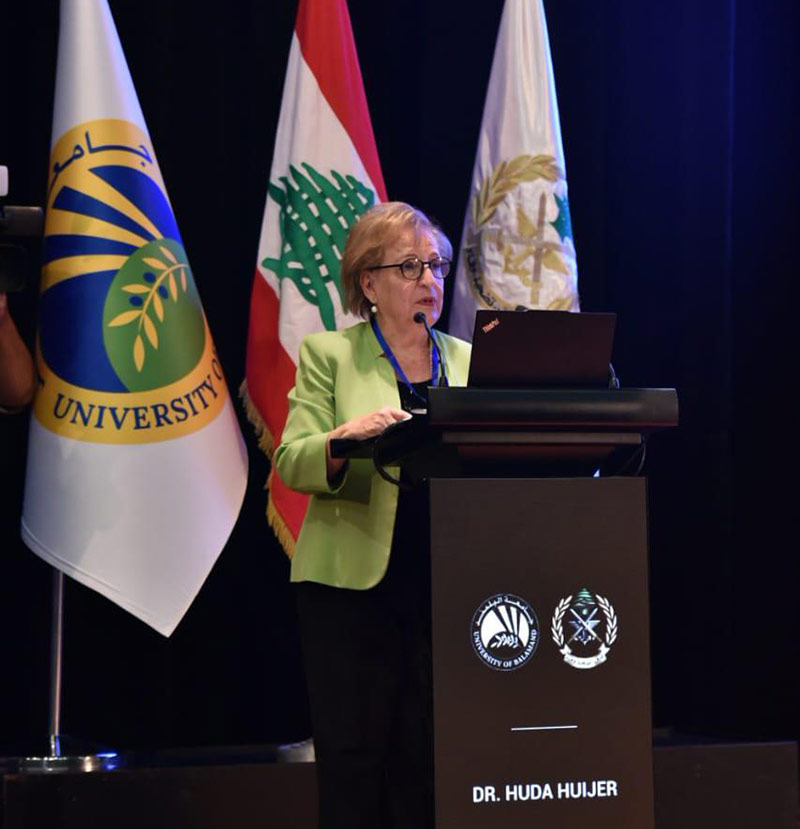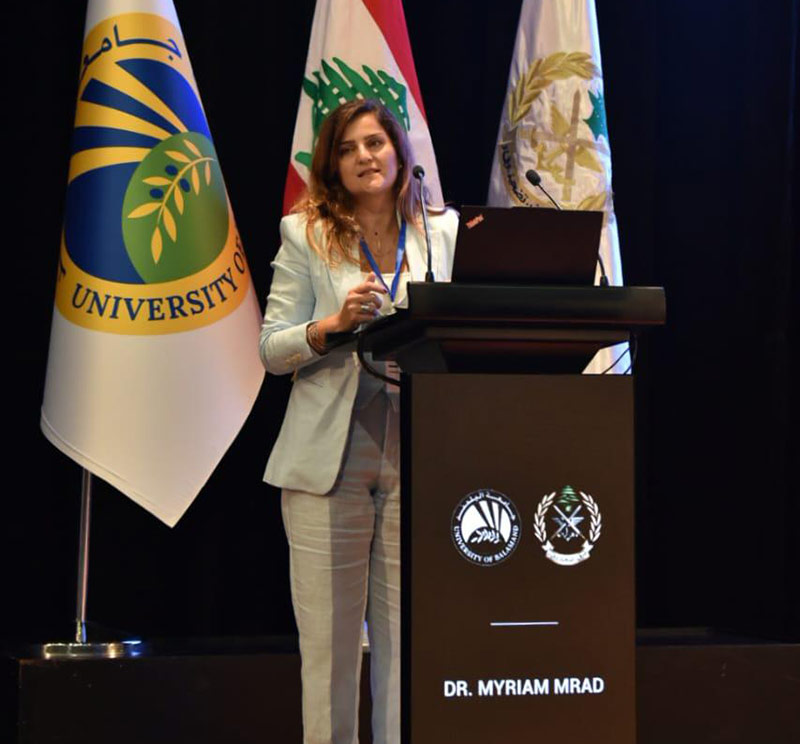Under the patronage of His Excellency the President of the Lebanese Republic, General Joseph Aoun, and in collaboration with the Lebanese Army Military Healthcare, the Faculty of Health Science (FHS) at the University of Balamand (UOB) organized the “Health, Emergency Action & Leadership in Crisis Management HEAL Forum” Conference on June 3, 2025, at the university’s main campus in Koura.
The conference was attended by the representative of his Excellency the President of the Republic of Lebanon General Joseph Aoun Minister of Agriculture Dr. Nizar Hani, the representative of Lebanese Armed Forces Commander General Rodolph Haykal Major General Hassan Aoude, Army Director of Military Medicine Brigadier General Dany Bcherrawy; UOB President Dr. Elias Warrak; Dean of FHS Dr. Huda Huijer, Chairperson of the Public Health Department Dr. Myriam Mrad, along with leaders from the health, academic, and military sectors, as well as deans and directors from the university.
This conference was part of the 30th anniversary celebrations of FHS at UOB and aimed to address major challenges facing Lebanon’s healthcare system amid ongoing national crises. The event sought to facilitate dialogue among key players in the health sector, reflect on lessons learned from recent crises, and propose innovative solutions to strengthen the resilience of Lebanon’s healthcare system for future emergencies.
The program included lectures and panel discussions focused on strategic topics in health crisis management, such as the impact of conflict on the healthcare system, the importance of strategic planning, infrastructure development, climate-related health crises, and leadership in high-pressure environments. A number of health experts participated in the sessions, along with Minister of Public Health Dr. Rakan Nassereddine, Representatives from the Ministry of Social Affairs and the Ministry of Labor. Lectures were also delivered by Dr. Nassim Taleb and Mr. Carlos Ghosn.
In her remarks, Dr. Mrad highlighted the uniqueness of the event, stating: “What makes this conference special is the collaboration with the Lebanese Army, which represents the nation. It also brings together experts from diverse backgrounds and emphasizes the value of partnership, with the goal of developing recommendations that can help improve public health, because health is a right for everyone.”
Dr. Huijer emphasized the faculty’s continued excellence: “This year we proudly celebrate 30 years since the founding of the faculty- three decades of service education and research in Lebanon’s most essential and challenging fields.” She added: “Despite the many compounded crises Lebanon has endured the Public Health department continues to be a beacon of excellence not only in its commitment to service and education but most notably in its research productivity, particularly in the critical and emerging fields of environmental health and climate change.”
Brigadier General Dani Beshrawi stressed the need for collaboration: “In the midst of all these challenges, one truth has become clear: no single entity, no matter how competent, can face crises alone. Collaboration is no longer optional; it is essential for survival. This conference serves as a platform for dialogue and cooperation among official health authorities, the military, the private sector, universities, and civil society organizations.”
Dr. Warrak spoke about the need to rebuild the healthcare system: “Given all the tragedies and experiences Lebanon has been through, we must become a country that learns from hardship in order to overcome it. This requires community awareness along with strategic planning by those in decision-making roles. We must invest in modern infrastructure, train healthcare workers to handle crises, and build emergency response systems using new technologies.”
Major General Hassan Aoude, representing Lebanese Armed Forces Commander General, emphasized: “Our gathering at the Crisis Management in the Health Sector Conference at UOB reflects the shared will of many national institutions, especially the Ministry of Public Health, alongside senior officials and experts from various healthcare-related fields. Together, we aim to strengthen Lebanon’s healthcare system and prepare it to face future public health crises.” He added: “The Lebanese Army has done everything it can to play an active role during serious health crises, fulfilling its ethical and professional duty to stand by the Lebanese people.”
His Excellency Minister of Agriculture Dr. Nizar Hani, representing his Excellency the President of the Republic of Lebanon, said: “The decision by UOB and the Lebanese Army to organize this forum was no coincidence. This academic institution has always played a leading national and intellectual role in supporting scientific initiatives and creating space for constructive dialogue among experts, policymakers, and international partners.” He added that crises should not be met with random decisions, but with vision, planning, and good governance. “The forum’s focus on leadership during crises, public-private partnerships, and strengthening health infrastructure provides a roadmap for building a national healthcare system based on innovation, fairness, and preparedness, not just reactive measures.”
This conference reflects UOB’s vision to shape public health policy in Lebanon and strengthen national preparedness by bringing stakeholders together to create practical, sustainable solutions.
